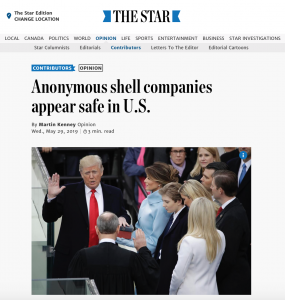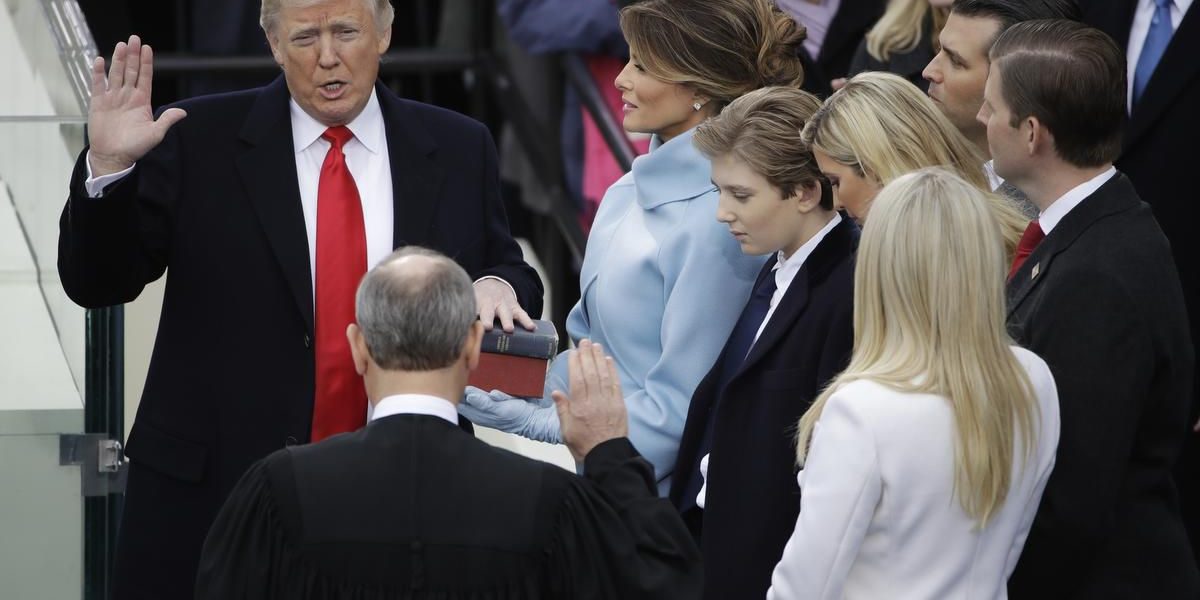A bill being discussed in Washington by the House Financial Services Committee could potentially indicate a shift in American policy toward combating the anonymous ownership of U.S. shell companies.
As highlighted in this excellent Washington Post article by Jeanne Whalen, the bill would require companies established in the United States to disclose their real owners to the Treasury Department, making it harder (so the article suggests) for criminals, terrorists and kleptocrats to anonymously launder money or evade taxes.
Call me cynical, but I have serious doubts about the U.S.’s genuine determination to combat the problem here.
As recently as March 2019, The Guardian newspaper highlighted speculation that President Trump’s Inauguration Committee accepted tens of thousands of dollars from foreign sources, who hid their identities via anonymous shell companies.
Federal prosecutors in New York are already looking into allegations of wrongdoing by the committee in question, with the issue of foreign donations to the forefront of their inquiries.
Robert Mueller’s probe into Russian meddling in the 2016 U.S. election has also visited this hot topic of discussion. Exactly what the foreign benefactors received (if anything) in return for their contributions to the president’s inauguration is also a source of investigative intrigue.
What apparently isn’t in doubt is the use of anonymous shell companies to facilitate some of the oblique payments causing concern. Herein lies the problem.
Indeed, the president’s former personal lawyer, Michael Cohen, has confirmed that both he and Trump operated shell companies. In the president’s case, dozens of such companies are thought to fall under his ultimate control.
It was such shell companies that facilitated the so-called “hush payments” to porn star Stormy Daniels, and raised serious questions around the irregular activities of the LLCs (Limited Liability Companies) in question.
In particular, what the president knew about their activities has been an area of concern and inquiry. The Democrat’s determination to access the president’s tax returns is borne in no small part in their belief that the president does indeed own multiple LLCs and has used them to his fiscal advantage.
The issue is that most U.S. business people of a certain stature will operate the sort of shell companies falling under the microscope of those who are driving for transparency in the ownership of companies.
In particular, the politicians on both sides of the political divide are likely to have utilized such vehicles currently, or in the past. Remember, not all such companies are used for illicit purposes. But there are politicians whose enormous wealth is no secret.
In order to be tax efficient they will undoubtedly have used shell companies or LLCs. In brief, this is not only an ethical issue, but by default it becomes a political issue.
U.S. Treasury Secretary Steven Mnuchin may well be making all the right noises regarding the reigning-in of anonymous LLCs domiciled in states like Delaware and Nevada; and those who use them.
But personally, I would be extremely surprised if the use of anonymous shell companies was effectively outlawed under the current administration. It would, after all, be tantamount to a turkey voting for Thanksgiving.
Also, the likes of the Delaware caucus to Congress is far too powerful to be rolled-over by the transparency brigade represented by the likes of Transparency International, Global Witness or Oxfam.
Martin Kenney is managing partner of Martin Kenney & Co., Solicitors, a specialist investigative and asset recovery practice based in the British Virgin IslandsVI, focused on multi-jurisdictional fraud and grand corruption cases www.martinkenney.com With thanks to Tony McClements, Senior Investigator at Martin Kenney & Co, for his assistance with this post.
This article originally appeared in The Toronto Star (29th May 2019)


